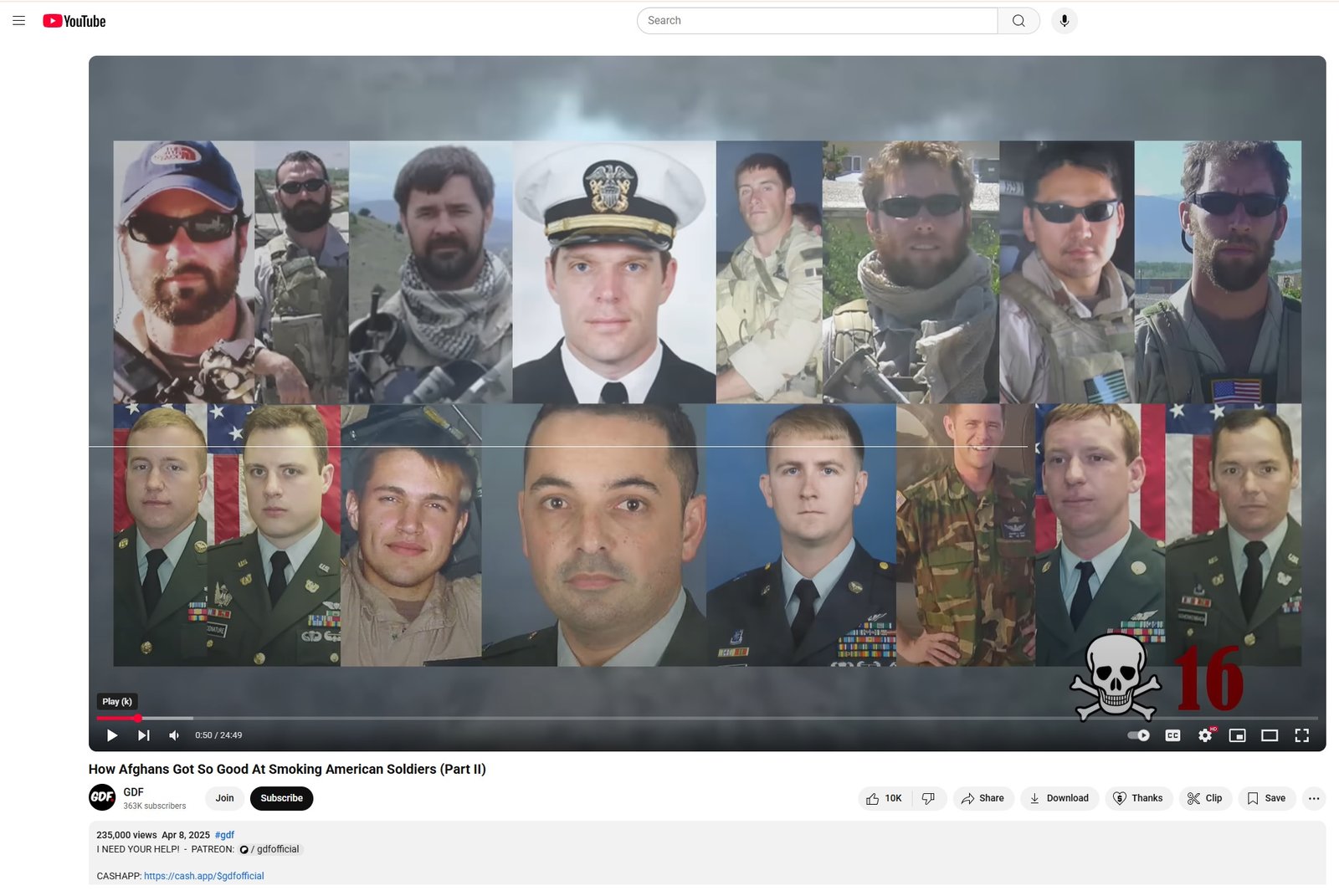Poor Afghans defeated
1. The empire on which the sun never sets
2. The dictatorship of the proletariat
3. The end of history empire
How Afghans Got So Good At Smoking American Soldiers
How Afghans Got So Good At Smoking American Soldiers (Part II)
Background
-
Afghanistan has long been known as the “Graveyard of Empires”, having resisted invasions from the British, Soviets, and most recently, the United States.
-
The Taliban emerged from a mix of religious schools and Mujahideen fighters after the Soviet withdrawal and during Afghanistan’s civil war.
-
Early U.S. contacts with the Taliban in the 1990s reveal that they were underestimated—seen as unsophisticated religious students.
🔹 Taliban Strengths
-
The Taliban leveraged Afghanistan’s rugged geography for guerrilla tactics.
-
Fighters were highly familiar with terrain, used ambushes, flanking, and hit-and-run tactics.
-
Civilians often warned each other of incoming U.S. patrols, and the Taliban frequently counterattacked and endured bombings without surrendering.
🔹 U.S. Military Campaign
-
After 9/11, the U.S. launched a heavy bombing campaign using cluster bombs, B-52 strikes, and massive ordinance (like the 15,000 lb “Daisy Cutter”).
-
These strikes destroyed infrastructure and caused massive civilian casualties, displacing hundreds of thousands.
-
Some bombings targeted Red Cross facilities, UN warehouses, and hospitals, either by mistake or poor intelligence.
🔹 Taliban Recovery
-
Despite initial collapse, the Taliban rapidly regrouped, launching the major 2006 offensive under commander Dadullah.
-
They reclaimed large regions (Helmand, Zabul, Ghazni) and gained influence through governance and local law enforcement under Sharia.
-
The Taliban’s healthcare and logistics networks improved over time, with hundreds of clinics and mobile medical teams.
🔹 Asymmetric Warfare
-
From 2007 onward, the Taliban shifted to IED warfare and suicide bombings, heavily damaging U.S. and Afghan forces.
-
U.S. troops reported psychological strain, knowing every patrol could be their last due to booby traps and ambushes.
-
The Taliban often warned civilians before attacks, reducing local casualties and winning support.
🔹 Symbolic Victories
-
The Taliban’s 2008 jailbreak in Kandahar freed over 1,000 prisoners and showed their organizational strength.
-
American leadership increasingly admitted they were not winning the war; commanders like McChrystal issued grim assessments.
🔹 Propaganda & Public Perception
-
Taliban commanders and literature (poetry, speeches) projected their faith-driven resilience, describing martyrdom as a weapon.
-
Carpet bombing and civilian deaths fueled anti-American sentiment and strengthened Taliban recruitment.
🔹 Concluding Remarks
-
The Taliban adapted quickly and successfully transitioned from collapse to dominance through terrain mastery, intelligence, adaptability, and ideological motivation.
-
Their comeback culminated in outlasting a 20-year occupation by the most technologically advanced military in the world.







